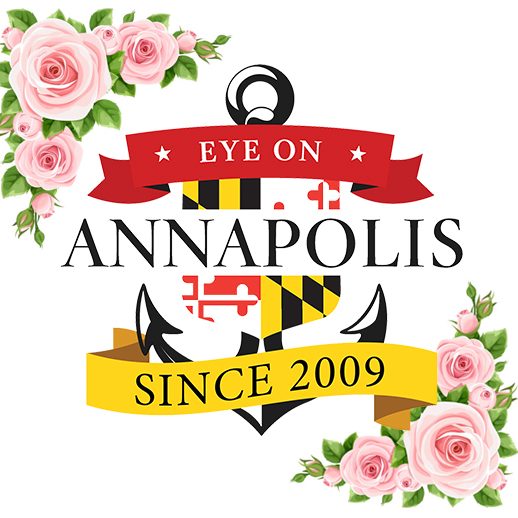
 Governor Larry Hogan today signed a number of critical health care and crime prevention measures, including legislation that will add more Marylanders to the health insurance rolls, and raise the minimum age tobacco can be sold to 21 amid an epidemic of teen vaping. The governor also signed Laura and Reid’s Law, which introduces tougher penalties for violent crimes against pregnant women.
Governor Larry Hogan today signed a number of critical health care and crime prevention measures, including legislation that will add more Marylanders to the health insurance rolls, and raise the minimum age tobacco can be sold to 21 amid an epidemic of teen vaping. The governor also signed Laura and Reid’s Law, which introduces tougher penalties for violent crimes against pregnant women.
“There is no more important job than protecting the health and safety of Marylanders,” said Governor Hogan. “The bipartisan measures we are enacting today – to confront the sharp rise in teen vaping and protect pregnant women and unborn children – are important steps in achieving that goal. We are also proud to continue Maryland’s record of leadership on health care by enacting legislation to further improve access and lower costs.”
Health Care
House Bill 1169—Business Regulation—Tobacco Products and Electronic Smoking Devices—Revision. The FDA has declared teen vaping to be an epidemic. This legislation includes vaping in the definition of ‘tobacco products’ and raises the minimum age for purchasing these products from 18 to 21.
House Bill 814—Maryland Easy Enrollment Health Insurance Program. This legislation implements a simple, straightforward process for more Marylanders to obtain health coverage. By checking a box on their state income tax return, uninsured Marylanders can have the Maryland Health Benefits Exchange determine their eligibility for benefits under the federal Affordable Care Act. This will help enroll as many as 220,000 more Marylanders in Medicaid or the Maryland Health Benefits Exchange, further reducing uncompensated care and lowering health insurance premiums.
House Bill 155/Senate Bill 164—Maryland Department of Health—Capital and Grant Programs—State Grants. This legislation will improve our ability to build community mental health, addiction, and developmental disabilities facilities by increasing the state’s share of the commitment to these projects. It also increases the caps on the percentages of certain costs that may be covered by state grants under the Federally Qualified Health Centers Grant Program.
House Bill 1098—Health Insurance—Maryland Health Benefit Exchange—Small Business Tax Credit Subsidy. This legislation paves the way for the Maryland Health Benefits Exchange to provide tax credit subsidies to small businesses who provide their employees with health care benefits. The tax credit benefits employers who have fewer than 25 full-time equivalent employees, pay an average wage of less than $51,600 a year, and pay at least half of employee health insurance premiums.
House Bill 116—Public Health—Correctional Services—Opioid Use Disorder Examinations and Treatment. This legislation puts Maryland at the forefront of opioid addiction treatment for inmates. It requires correctional facilities to offer all three FDA-approved forms of medication-assisted treatment to inmates diagnosed with opioid use disorder. The legislation also calls for mental health and substance use status screenings for each inmate.
House Bill 754—Health Insurance and Pharmacy Benefits Managers—Cost Pricing and Reimbursement. This emergency legislation protects pharmacies against a number of predatory practices that have come to light over the last few years regarding contract negotiations with Pharmacy Benefit Managers. The bill also gives the Insurance Commissioner greater powers to review and disapprove contracts if they violate these prohibitions.
Crime
Senate Bill 561—Laura and Reid’s Law. This legislation is named after Laura Wallen and her unborn son, Reid. Laura, a Howard County educator, was murdered in 2017. The bill prohibits a person from committing a crime of violence against another person when the offender knows or believes the other person is pregnant. An individual who violates this law is guilty of a felony and—in addition to any other penalty imposed for the underlying crime of violence—is subject to imprisonment not exceeding 10 years.
Senate Bill 346—Public Safety—Regulated Firearms—Prohibition of Loans. This legislation is designed to keep guns out of the hands of people who should not possess them. It prohibits the act of loaning a firearm to someone if the individual has cause to believe the recipient meets one of the legal disqualifiers for firearm possession, such as a felony conviction or involuntary commitment for mental illness. The bill also adds to the list of disqualifying circumstances under which a dealer or other person may not sell a regulated firearm to another person.
These measures are among 181 bills Governor Hogan signed on Monday morning, alongside Senate President Thomas V. “Mike” Miller and House Speaker Adrienne Jones.










































